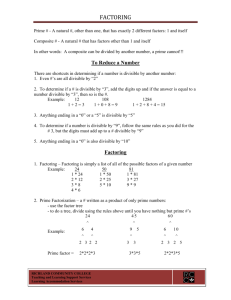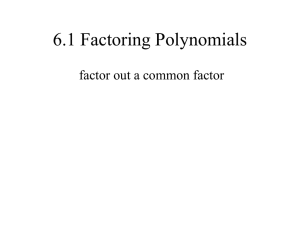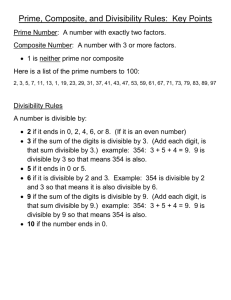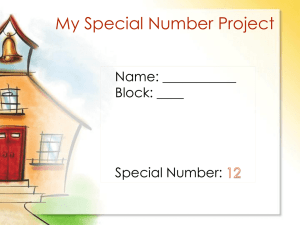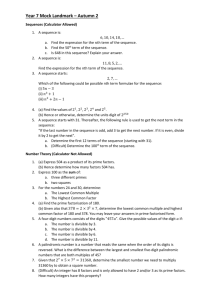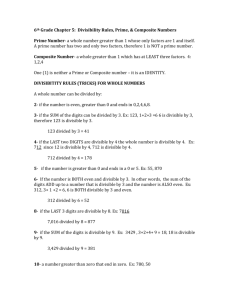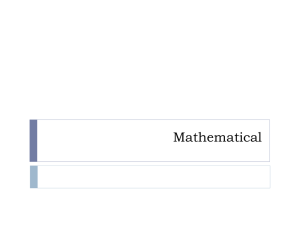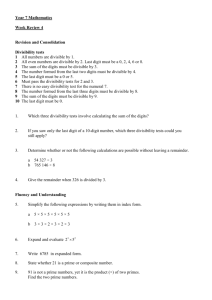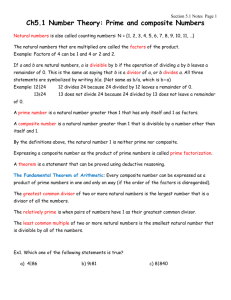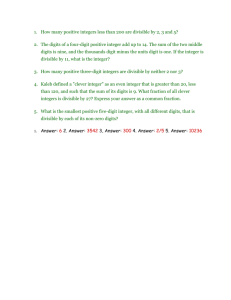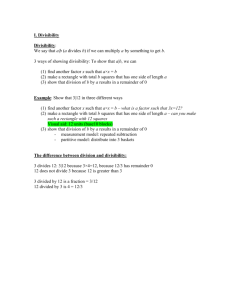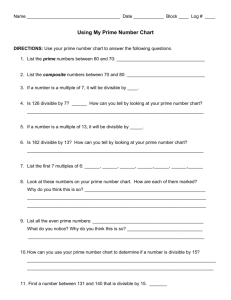Section 5.1 Prime and Composite Numbers:
advertisement
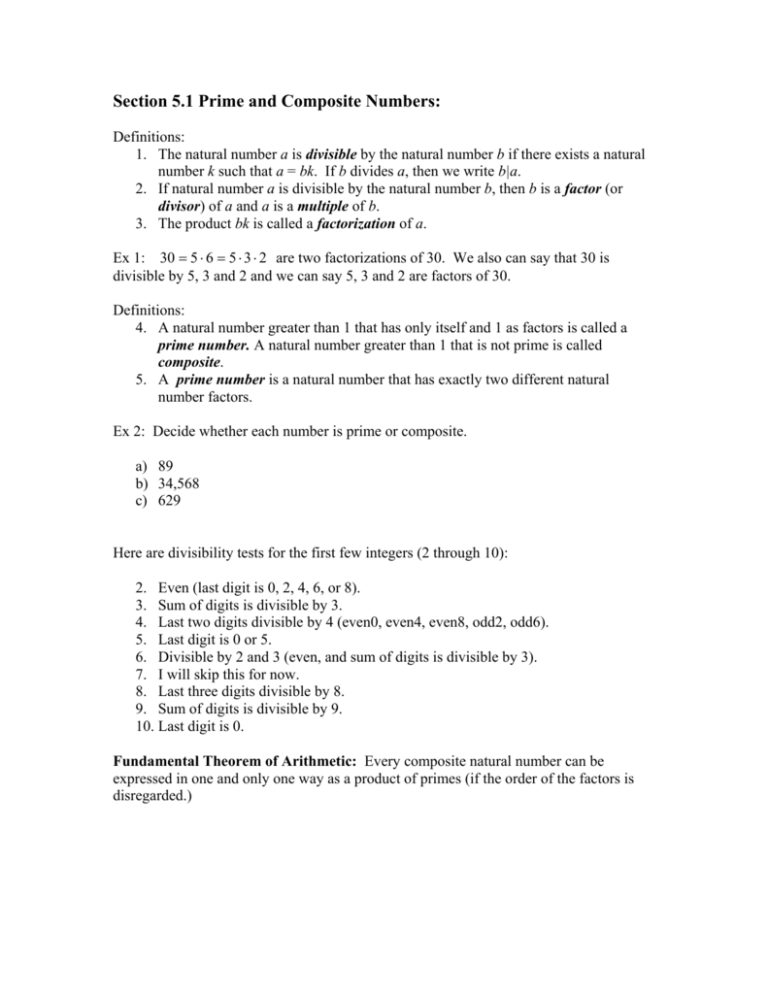
Section 5.1 Prime and Composite Numbers: Definitions: 1. The natural number a is divisible by the natural number b if there exists a natural number k such that a = bk. If b divides a, then we write b|a. 2. If natural number a is divisible by the natural number b, then b is a factor (or divisor) of a and a is a multiple of b. 3. The product bk is called a factorization of a. Ex 1: 30 = 5 ⋅ 6 = 5 ⋅ 3 ⋅ 2 are two factorizations of 30. We also can say that 30 is divisible by 5, 3 and 2 and we can say 5, 3 and 2 are factors of 30. Definitions: 4. A natural number greater than 1 that has only itself and 1 as factors is called a prime number. A natural number greater than 1 that is not prime is called composite. 5. A prime number is a natural number that has exactly two different natural number factors. Ex 2: Decide whether each number is prime or composite. a) 89 b) 34,568 c) 629 Here are divisibility tests for the first few integers (2 through 10): 2. Even (last digit is 0, 2, 4, 6, or 8). 3. Sum of digits is divisible by 3. 4. Last two digits divisible by 4 (even0, even4, even8, odd2, odd6). 5. Last digit is 0 or 5. 6. Divisible by 2 and 3 (even, and sum of digits is divisible by 3). 7. I will skip this for now. 8. Last three digits divisible by 8. 9. Sum of digits is divisible by 9. 10. Last digit is 0. Fundamental Theorem of Arithmetic: Every composite natural number can be expressed in one and only one way as a product of primes (if the order of the factors is disregarded.) Ex 4: Find the prime factorization of 360 and 425. Ex 5: Decide whether the following statements are true or false. a) No natural number is both prime and composite. b) If n is a natural number and 9|n, then 3|n. c) 1 is the smallest prime number. d) If 16 divides a natural number, then 2, 4, and 8 must also divide that natural number. e) The prime number 53 has exactly two natural number factors. Sieve of Eratosthenes: Sequentially write down the integers from 2 to the highest number n you wish to include in the table. Cross out all numbers >2 which are divisible by 2 (every second number). Find the smallest remaining number >2. It is 3. So cross out all numbers >3 which are divisible by 3 (every third number). Find the smallest remaining number >3. It is 5. So cross out all numbers >5 which are divisible by 5 (every fifth number). Continue until you have found all the primes less than or equal to the square root of n. The remaining numbers not crossed out are also prime. Ex 6: 2 3 4 5 6 7 8 9 10 11 12 13 14 15 16 17 18 19 20 21 22 23 24 25 26 27 28 29 30 31 32 33 34 35 36 37 38 39 40 41 42 43 44 45 46 47 48 49 50
